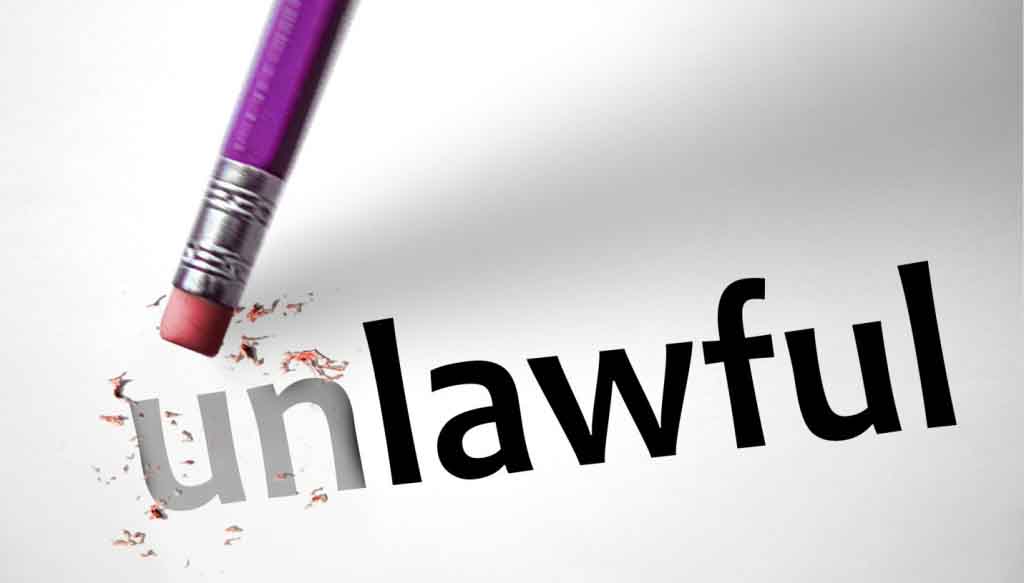Illinois Attitude on Marijuana Possession Is Slowly Shifting
Illinois has historically taken a hard line when it comes to marijuana possession, but as the national attitude towards pot shifts, legislators in our state are slowly pushing for change. Now, three bills that would effectively decriminalize possessions of small amounts of marijuana are under consideration.
Here’s what you need to know about those three proposals:
- House Bill 5708, sponsored by Rep. Kelly Cassidy, D-Chicago, would make the possession of up to 30 grams of marijuana a “regulatory offense,” meaning it would be punishable by a fine of up to $100 and could be expunged from an individual’s record. Under current state laws, even being caught with 2.5 grams of marijuana can result in a class C misdemeanor, up to 30 days in jail, and up to a $1,500 fine.
- House Bill 4091, sponsored by Rep. Michael Zalewski, D-Chicago, would also result in a ticket for marijuana possession, but it would still be considered a criminal offense instead of a petty offense. This bill would also crack down on possession of large amounts of marijuana near a school, making it a class X misdemeanor that is punishable by up to 30 years in prison and a fine of $200,000.
- House Bill 4299, sponsored by Rep. Christian Mitchell, D-Chicago, would reduce the possession of up to four marijuana plants from a class A misdemeanor to a petty offense with a fine of $100. Having between five and twenty plants would also be reduced from a class 4 felony to a class A misdemeanor.
While none of the three bills would fully legalize marijuana in Illinois, they would at least change the definition of marijuana from a dangerous drug to contraband, making it easier for those caught with a small amount of marijuana in their possession to avoid a criminal charge that could influence the rest of their life.
Why Legislators Are Pushing for Marijuana Regulation Changes
 There are several good reasons why legislators are rethinking marijuana possession policies in Illinois.
There are several good reasons why legislators are rethinking marijuana possession policies in Illinois.
Charging marijuana possession as a misdemeanor wastes state money and time. Misdemeanor marijuana possession is currently the leading arrest category in Chicago and accounts for as much as 46,000 hours of police time and $23 million in tax dollars. And that’s just in Chicago—according to the ACLU, the state of Illinois spends $200 million on low-level marijuana busts every year.
There are racial disparities in marijuana possession charges. It’s impossible for police to catch everyone who uses pot, and the arrests that are made show that there’s a huge racial disparity in who is being charged, with black people being 3.7 times more likely to face a marijuana charge than white people in spite of similar usage. A 2013 ACLU report found that there were racial biases in marijuana arrests all over the country, but Chicago has one of the biggest racial disparities in the country.
Marijuana charges have a far-reaching social and economic impact. While Colorado and Washington have legalized recreational marijuana and many other states have taken steps to decriminalize it, possessing any amount of marijuana in Illinois could currently result in a permanent criminal record that would make it difficult for an individual to take out student loans, find housing, or seek many employment opportunities. A conviction for such a minor and widespread offense could essentially limit an individual’s ability to be a contributing member of society.
Laws Evolve as National Attitudes Change
 With Washington and Colorado demonstrating how marijuana legalization can benefit their states without leading to any kind of “pot use epidemic,” more states are beginning to rethink their legislation related to marijuana possession. Even President Obama commented in The New Yorkerthat he believes pot is less harmful than alcohol and supports legalization in Washington and Colorado because it’s important to not just selectively punish a few people for something that many people are doing.
With Washington and Colorado demonstrating how marijuana legalization can benefit their states without leading to any kind of “pot use epidemic,” more states are beginning to rethink their legislation related to marijuana possession. Even President Obama commented in The New Yorkerthat he believes pot is less harmful than alcohol and supports legalization in Washington and Colorado because it’s important to not just selectively punish a few people for something that many people are doing.
Although Illinois legislation is moving slowly, the three new marijuana possession bills, as well as new state rules to allow medical marijuana, at least indicate that there has been a sea change in the way our state is handling marijuana possession cases.
In the meantime, if you are charged with marijuana possession anywhere in the state of Illinois, it’s imperative that you contact an experienced drug crimes attorney as soon as possible. Don’t let a minor offense result in a disproportionate sentence and a criminal record that could affect the rest of your life—fight to get the charge against you reduced or dropped altogether.
About the Author:
Andrew M. Weisberg is a former felony prosecutor who now serves as a defense attorney in the greater Chicago area. He has extensive experience in handling all types of criminal cases, from sex offenses and violent crimes to theft-related crimes and traffic violations.







 Blog Home
Blog Home 










